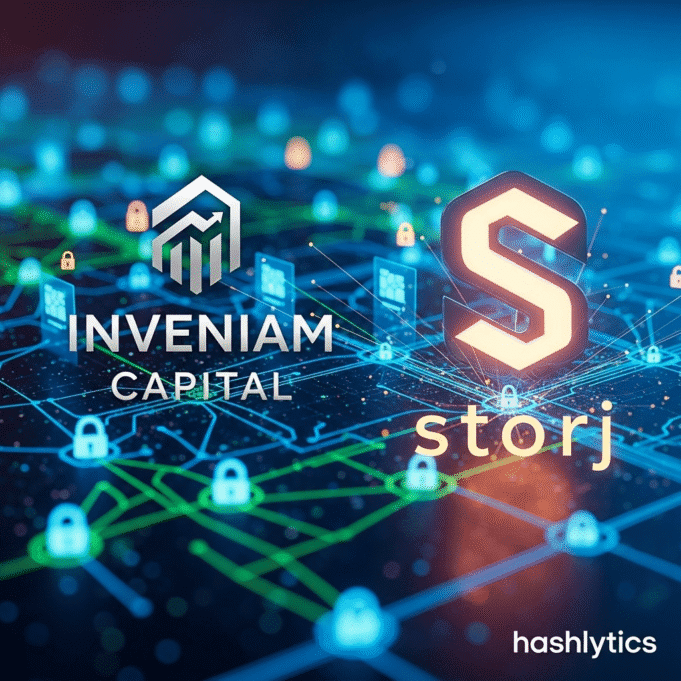In a strategic move signaling growing institutional confidence in decentralized infrastructure, blockchain investment firm Inveniam Capital has acquired Storj, a pioneering decentralized cloud storage platform. This acquisition marks significant consolidation in the Web3 storage ecosystem and underscores the viability of peer-to-peer alternatives to traditional cloud providers.
How Storj Works
Storj operates as a marketplace where individuals rent out unused hard drive space to earn passive income, while users store files across a distributed network rather than relying on centralized data centers. The platform functions similarly to Airbnb for hard drives—leveraging blockchain technology and cryptographic proofs to ensure trust through code rather than corporate promises.
| Feature | Storj Advantage |
|---|---|
| Storage Model | Distributed peer-to-peer network |
| Data Security | Cryptographic privacy guarantees |
| Scalability | Petabytes stored with high uptime |
| Cost Efficiency | Competitive with Amazon S3 pricing |
Strategic Implications
Inveniam Capital, focused on blockchain-based asset management and infrastructure investments, views Storj as a cornerstone asset in the evolving decentralized data economy. The acquisition positions the firm to capitalize on the shift toward decentralized services as enterprises prioritize data sovereignty and operational resilience.
The deal also signals confidence in token-based economies. Storj’s STORJ token serves as both a utility asset for network participants and a governance mechanism, suggesting Inveniam believes this model will continue attracting users and generating value.
Market Impact
- Enterprise Adoption: Inveniam brings institutional credibility to accelerate enterprise client acquisition
- Sector Validation: Competitors like Arweave, Filecoin, and Sia gain confidence in decentralized storage viability
- Infrastructure Value: Shift from speculative trading to owning actual Web3 infrastructure
Key Challenges and Questions
Centralized ownership of a decentralized network raises important governance questions. Token holders and network participants will scrutinize how Inveniam manages feature development and balances profitability with community interests. Critical concerns include:
- Will token holders retain meaningful influence over protocol upgrades?
- How will Inveniam balance profitability with community expectations?
- Can Storj maintain genuine decentralization under institutional ownership?
Broader Industry Trends
This acquisition reflects a larger trend where institutional investors move beyond speculative token trading into owning Web3 infrastructure. Similar moves include Coinbase’s blockchain infrastructure acquisitions and Grayscale’s expansion into custody and staking services.
Infrastructure creates durable value—storage networks store actual data, solve real problems, and generate measurable revenue. When institutions acquire these assets, they’re betting the Web3 infrastructure market will mirror traditional cloud computing: massive, essential, and highly profitable.
Future Outlook
Inveniam‘s immediate priorities likely include integrating Storj into a broader infrastructure strategy, potentially bundling services, targeting enterprise clients, or exploring partnerships with major cloud providers. This could position decentralized storage as complementary to rather than competitive with traditional providers.
This deal represents meaningful validation of decentralized infrastructure’s viability. Institutional capital flows toward assets with real utility, users, and revenue potential—characteristics Storj demonstrates, now backed by Inveniam’s resources to scale further.


